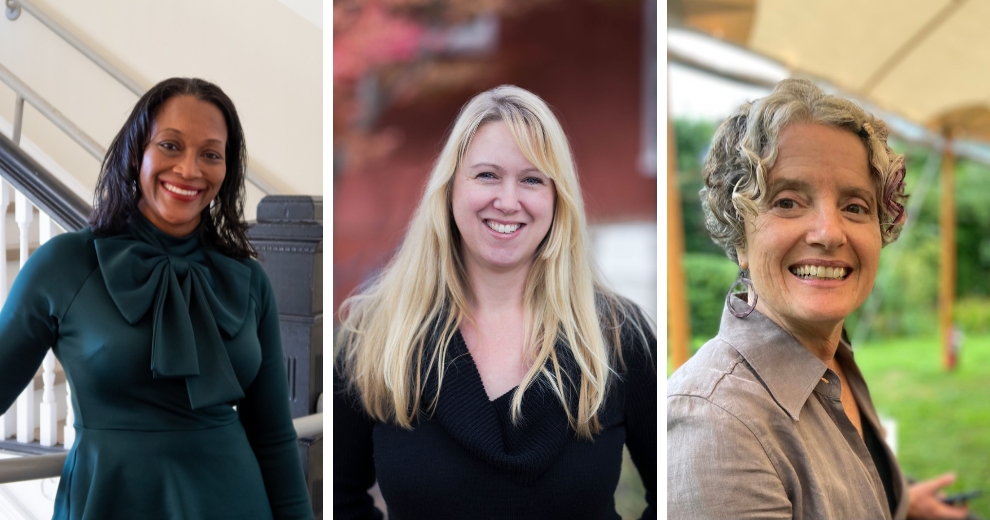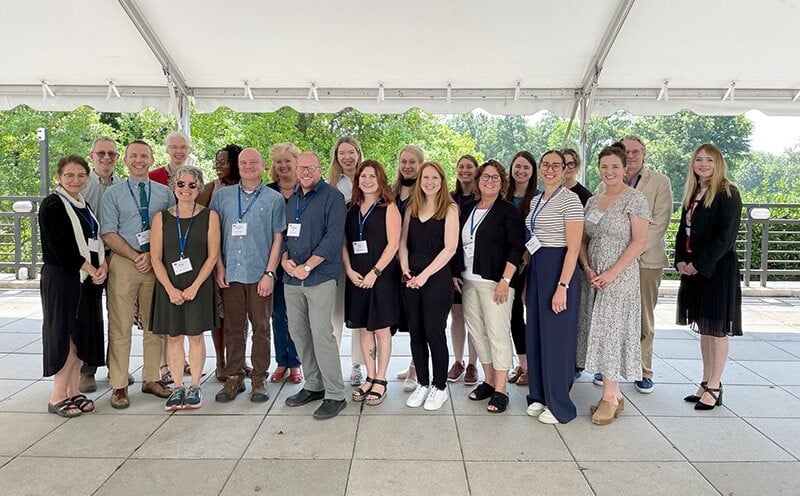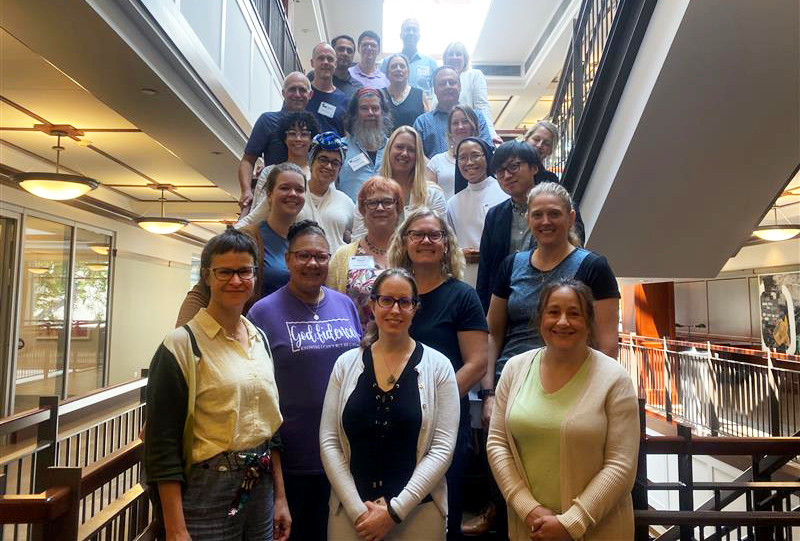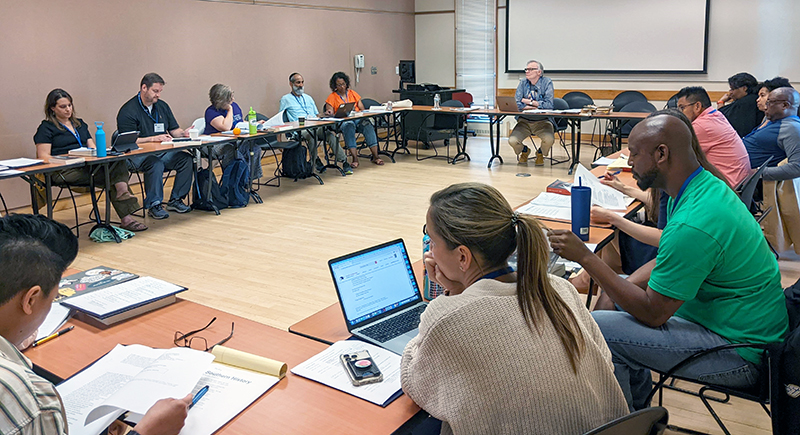In June, three MBU faculty participated in seminars designed to enrich their curricula and enhance student learning.

Professor of History Amy Tillerson-Brown, Associate Professor of Religion Katie Low, and Assistant Professor of Art History Kerry Mills (l-r) participated in week-long seminars through the Council of Independent Colleges.
Throughout the year, the Council of Independent Colleges (CIC), the national membership organization of nonprofit independent colleges, offers conferences, seminars, and other programs and services that help member institutions improve their educational quality.
This past June, three Mary Baldwin University professors participated in week-long seminars designed to broaden faculty members’ knowledge and perspective to help them strengthen the teaching of their respective disciplines.
Assistant Professor of Art History Kerry Mills attended the “Power and Absence: Connecting Renaissance Art to Diverse Audiences” seminar at the Memphis Brooks Museum of Art in Tennessee. Mills was one of 20 faculty members from around the country who were nominated and selected to participate in the collaborative seminar with the goal to create a meaningful narrative in art history that would resonate and foster a sense of belonging with all students.
“Working with faculty members and curators with the goal of breaking down historic power dynamics that favor men in leadership and roles of authority and disempower and objectify women and persons of color was a highlight for me,” Mills said.
“With the Kress Collection at the Memphis Brooks Museum as our anchor, we worked together to generate ideas for breaking down the art historical canon that has historically marginalized women and persons of non-European descent,” Mills added.
Working in groups, participants explored ways to create a learning environment by repositioning the content from a Western European focus to more of an emphasis on the voices of persons of color, women, and non-cisgender individuals.
“This seminar reinforced the work I had done reconceiving the art history curriculum to open up the narrative to include more voices and break the western focus,” Mills said. “I am currently teaching my art history courses with a new lens that is open to include a broader range of stories and experiences that our students can see themselves in.”

The “Power and Absence: Connecting Renaissance Art to Diverse Audiences” seminar was held at the Memphis Brooks Museum of Art in Tennessee.
Associate Professor of Religion Katie Low attended the “Teaching Interfaith Understanding” seminar at DePaul University in Chicago.
Low, who was chosen to participate in the inaugural “Teaching Interfaith Understanding” seminar in 2014, said that attending the 2023 seminar now, while in mid-career, bolstered her confidence and pride in the work of imparting to students a sense of “civic responsibility in a religiously diverse world.”
“I bring interfaith engagement to all the courses I teach because the field of interfaith studies helps students prepare for personal and professional success,” Low said. “My expertise in religious studies allows me to impart not only important religious literacy to our students, but also to practice skills in bridge-building, peace-making, and active community engagement with religious diversity.”
Low said that the seminar especially inspired the interactive pedagogical methods she brings to REL 130 Encountering Religious Diversity.
“We live and work in a complex world,” Low said. “Humans doing, and even rejecting, religions remain at the heart of that complexity. To gain confidence in that fact, students in REL 130 will work through case studies in which multiple perspectives, principles, and methods for engaging religious diversity are entertained and explored.”

DePaul University in Chicago hosted the “Teaching Interfaith Understanding” seminar.
Professor of History Amy Tillerson-Brown participated in CIC’s seminar on the legacies of American slavery in collaboration with the Gilder Lehrman Center (GLC) for the Study of Slavery, Resistance, and Abolition at Yale University’s MacMillan Center in New Haven, Conn.
Tillerson-Brown was joined by faculty members from 19 institutions for the immersive program, which especially focused on teaching about slavery and its reprecussions.
The seminar was led by David Blight, Sterling professor of history at Yale and GLC director, and included Yale scholars Daniel HoSang speaking on the history of the eugenics movement in America; Carolyn Roberts on the continuing impact of slavery on health disparities by race; and James Forman, Jr., on crime, race, and mass incarceration.
Tillerson-Brown’s research interests include the activism of Black women who networked to build their communities despite less than ideal economic conditions and traditional negative assumptions associated with their race and gender. Her forthcoming book, Negotiating Intersections of Gender, Social Class, and Race: Black Women in Prince Edward County, Virginia, Activists and Community Builders, 1920-1965 analyzes the efforts of Black women in Prince Edward County before and during the public school crisis from 1951 to 1964, as the county resisted the desegregation mandate of the Brown v. Board of Education decision.

A discussion during the “Legacies of American Slavery” seminar.